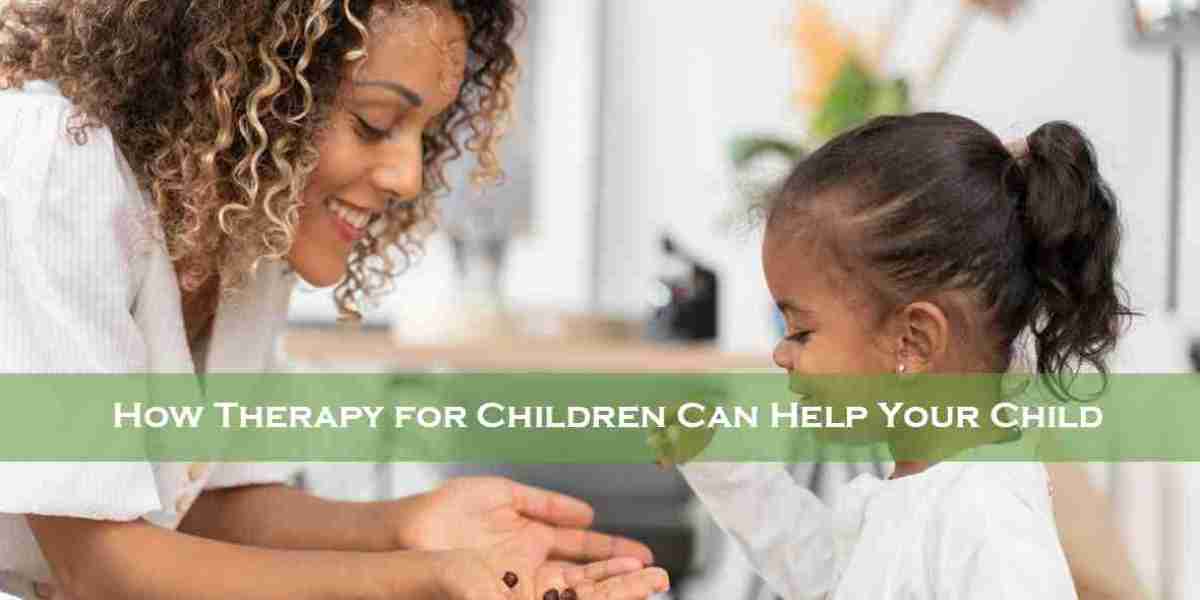Childhood is a time of growth, exploration, and learning. However, for some children, it can also be a period of stress, emotional struggle, and uncertainty. Child counseling is a specialized form of therapy designed to address the unique needs of children. It can be a powerful tool in helping young minds navigate difficult emotions and experiences. Therapy for children can have a positive affect in a child's life, as it builds emotional well-being and resilience.
A Safe and Supportive Space
Therapy for children offers a safe space for children to express their thoughts and feelings freely. Your child’s therapist will work to establish a rapport and trust with your child. Child therapists create an environment where children can explore their emotions, fears, and anxieties without fear of criticism or punishment. Their gentle guidance encourages children to open up.
Understanding and Coping with Emotions
Children may struggle to regulate their emotions, especially when facing challenges like divorce, loss, trauma, or bullying. Through child counseling, kids learn to identify and articulate their emotions. They learn healthy ways to cope with feelings of sadness, anger, fear, or anxiety. Emotional regulation techniques can improve a child's behavior and overall well-being.
Enhancing Communication Skills
Effective communication is vital for healthy relationships and emotional development. Child counseling provides children with the tools they need to better express themselves. They learn to articulate their needs. Additionally, they learn the language needed to communicate their emotions to their parents, teachers, and peers. Improved communication skills can lead to more fulfilling interactions and self-confidence.
Addressing Behavioral Issues
Child therapists are skilled in identifying and addressing behavioral issues that may be troubling a child. Behavioral issues can include acting out, defiance, withdrawal, aggression, etc. Child counselors work with children and their families to understand the root causes of distress. They develop strategies for positive behavioral changes. Early intervention through counseling can prevent behavioral problems from escalating.
Boosting Self-Esteem and Confidence

The messaging received throughout childhood significantly shapes a person's self-esteem and self-worth. Negative life experiences can lead to low self-esteem and a lack of confidence. Child therapy also focuses on growing a child's self-awareness, self-acceptance, and emphasizing their strengths. A confident child who believes in their abilities is more likely to face challenges with optimism.
Navigating Life Transitions
Life transitions such as moving to a new school, the arrival of a new sibling, or parental separation can be overwhelming for children. Through therapy for children, kids can get much needed support during disturbing life events. It can help children adapt to change, process their emotions, and develop coping strategies.
Healing from Trauma
Children who have experienced traumatic events such as abuse, death of a loved one, accidents, or natural disasters, may require specialized therapeutic support to heal and recover. Child counselors use trauma-focused therapy to help children process their traumatic experiences in a safe and supportive manner.
Improving Social Skills
Children who have good social skills are equipped to build meaningful relationships and connections with peers. Child counseling can help children develop emotional intelligence by teaching them skills like empathy, active listening, and conflict resolution.
Parental Guidance and Support
Child counseling can involve the participation of parents or caregivers. Therapists provide guidance and support to parents, which helps them understand their child's needs and emotions. Parental involvement in the counseling process can strengthen the parent-child bond and create a supportive family environment.
Building Resilience
Resilience is the ability to withstand and recover from adversity and stress. Child counseling equips children with the coping skills and emotional tools that build resilience.
Investing in a child's emotional well-being can lead to lifelong benefits. Trust Mental Health has a team of experienced, BIPOC therapists. We provide therapy for children in San Jose and all over California. Contact us today for a free 15 minute consultation.
FAQs
When should I consider therapy for my child?
You may consider therapy for your child if they are experiencing significant emotional distress, behavioral problems, social difficulties, or if they have experienced a traumatic event. If your child's struggles persist for an extended period and interfere with their daily functioning, therapy could be beneficial.
What issues can therapy for children help with?
Child therapy can address a wide range of issues, including anxiety, depression, grief and loss, trauma, behavioral problems, adjustment to life changes, family conflicts, bullying, and social skills deficits, among others.
What happens during a child therapy session?
In child therapy, sessions are usually conducted in a child-friendly environment, and play-based activities may be used to encourage the child to express themselves. The therapist may engage the child in discussions, art, storytelling, games, and other activities that help them explore their feelings and thoughts in a non-threatening manner.









